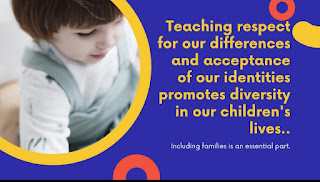Communities of practice in the early childhood field
Let's take a look!
What is a community of practice?
A community of practice is defined as a group of people who reunites to share a passion or a concern for what they do and learn how to improve interaction with others. The interaction entails social relations around the activities and activities formed around relationships. A community of practice in the early childhood field brings valuable benefits to the achievement of high-quality care and education.
To differentiate a community of practice from gatherings of professionals, it is important to understand that communities of practice have a domain of interest, a community, and a focus on practice.
One example of a community of practice
Practitioners in a community of practice share infinite passions or concerns. For example, for the improvement of teaching strategies, the group engages in activities and discussions, and shares resources, experiences, problem-solving strategies, knowledge, and skills developed in practice. As a result, the practitioners acquire more knowledge to improve their teaching practices influenced by the stories they shared. The group also coordinates for another meeting to continue their connections, shares, and improvements.
Communities of practice for early childhood practitioners
As leaders in the early childhood field, any early childhood educator could create a new self-supporting community of practice or join an existent community of practice. Probably you could find it in your community. Living accordingly with social distancing due to COVID-19, I recommend looking for a community of practice online. Here are three of them. The availability of platforms and applications for meetings online is also numerous. Here are some organizations that you could join.The communities and interest forums about endless topics of the early childhood field make this platform worthful.
Zero To Three is another organization that provides a Community of Practice Facilitation, which is designed to provide facilitators with the knowledge and skills needed to encourage peer learning through ongoing communities of practice.
The organization counts on topic experts available to share strategies for increasing core knowledge around improving the well-being of very young children.
Center on the Developing Child of Harvard University, which is for the passionates of brain development like me. The organization provides Learning Communities in Action. Communities of practice on the play, policy learning communities, and strategies to protect brain development for children living in poverty are some of the discussions for early childhood innovators for setting goals, sharing results, and cultivating not only leaders but also new ideas.
Skills and experience to competently fulfill the communities of practice
As we connect through the same passions, it increases interactions with people. It's essential to develop and demonstrate our abilities as leaders, communicators, and collaborators. Working with people requires the skills of doing it with respect and cooperation, setting aside attacks, offenses, and misbehavior. Our discussions and expressions should be based on ethics and values. As practitioners of communities of practice, we need to be able to increase performance by acquiring knowledge and research-based academic strategies to have better results as early childhood professionals. As professionals, the attitudes and behavior expected must demonstrate knowledge, expertise, professionalism, and education that turns us into agents of positive change for promoting the education and well-being of young children and their families.
References
Cashman, J., Linehan, C., & Rosser, M. (2007, July). New eyes: Meeting challenges through communities of practice. Retrieved from http://www.ideapartnership.org/documents/NewEyes-1-Strategies.pdfCenter on the Developing Child of Harvard University
Helm, J. (2007). Energize your professional development by connecting with a purpose: Building communities of practice. Young Children, 62(4), 12-16.
NAEYC
Zero To Three
______________________
Diana A. Rivera is an Early Childhood Educator, with graduate studies in Educational Psychologist, and author of Be the voice for children. Diana believes and commits to the healthy development, growth, well-being, and learning of all children. The blog posts share ideas and knowledge about educational psychology, child and brain development, parenting, diversity, effective teaching practices, early childhood education, and care to support the empowerment of children and families.










